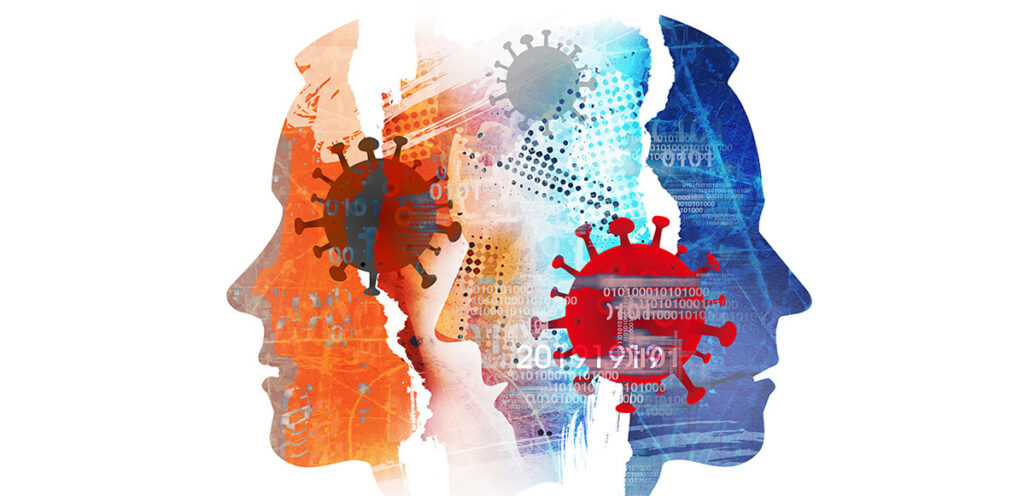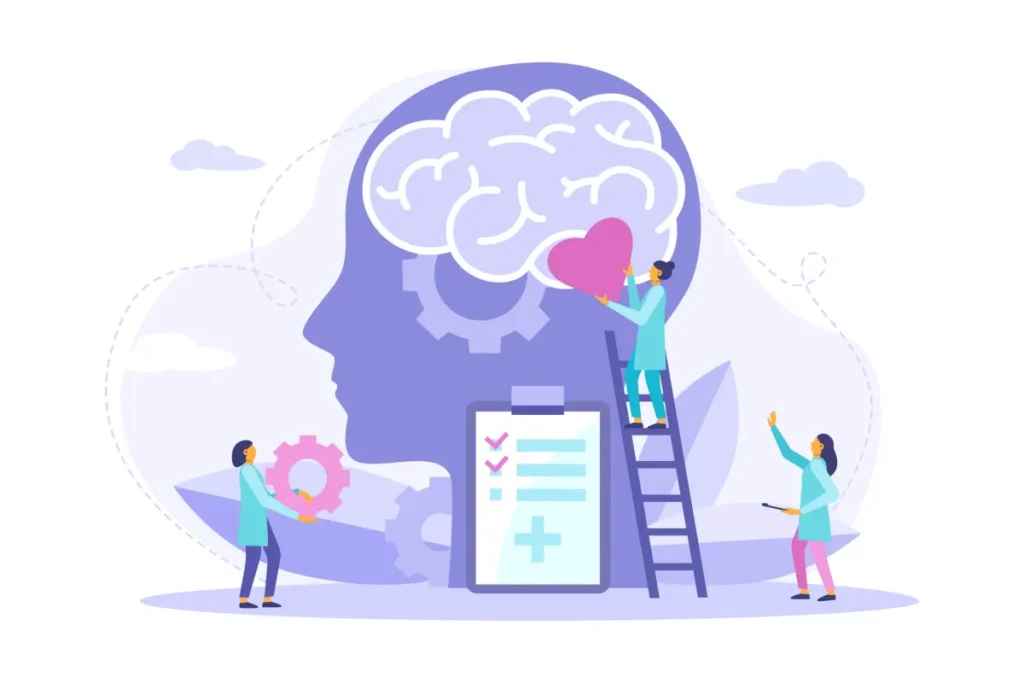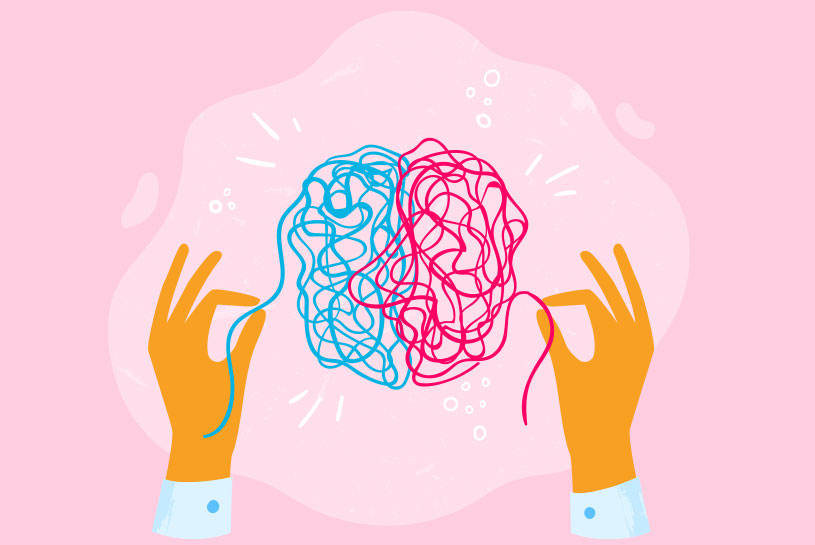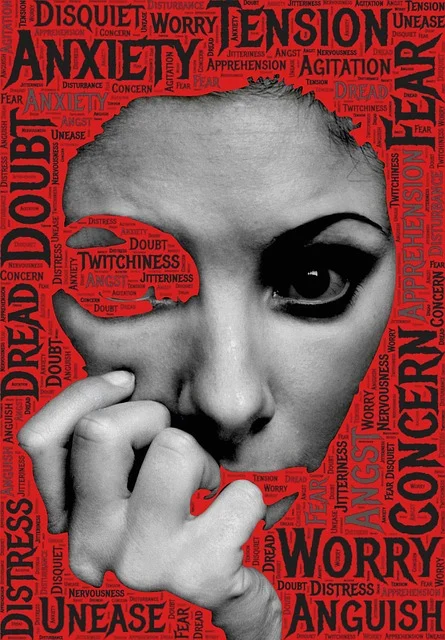Mental health is often seen through a narrow lens — we notice it when someone has a breakdown, isolates completely, or openly expresses emotional pain. But what about the people who seem “fine” on the outside? Those who smile, function, and keep up appearances — yet quietly carry deep emotional distress. These are the people who may be dealing with hidden mental health disorders.

Hidden mental health conditions are real, but they often go undiagnosed, unnoticed, or misunderstood. They don’t always come with visible symptoms, and many who live with them develop coping mechanisms that mask the pain. This article explores what hidden mental health disorders are, why they often go undetected, which ones are most common, and how to recognize the subtle signs in yourself or others.
What Are Hidden Mental Health Disorders?
Hidden mental health disorders are conditions that people either don’t realize they have or actively try to hide from others. They might be mild in appearance, overlap with other symptoms, or be mistaken for personality quirks, stress, or even success-driven traits like ambition or perfectionism.
These disorders often involve high-functioning individuals who continue to work, socialize, and perform daily responsibilities. But beneath the surface, they may be battling fatigue, anxiety, self-doubt, or emotional numbness.
Unlike more visible conditions like panic attacks or major depressive episodes, hidden disorders quietly persist over time. They can eat away at a person’s well-being, relationships, and sense of self — often without anyone around them noticing.
Why Mental Health Issues Go Unnoticed
There are many reasons why certain mental health conditions remain hidden. Sometimes the person isn’t even aware that their experience is abnormal or that help is available. Other times, shame or fear prevents them from opening up.
Here are some key reasons these disorders go undetected:
1. High-Functioning Behavior
People with hidden mental health issues often maintain successful careers, active social lives, and responsibilities. Their ability to “function” can mask deep inner struggles, leading others to believe they are doing just fine.
2. Stigma and Silence
Mental health stigma still exists in many families, cultures, and communities. People are taught to be strong, push through challenges, or not show weakness. This mindset causes many to hide their emotional pain.
3. Personality Mislabels
Some symptoms of hidden disorders are wrongly seen as personality traits. For example, chronic worry may be mistaken for being “overly responsible,” and social withdrawal might be seen as being “introverted.”
4. Cultural and Social Expectations
In some cultures or family systems, emotional expression is discouraged. People learn to suppress their feelings to maintain harmony or to avoid being judged, leading to long-term emotional suppression.
5. Lack of Awareness
Many don’t recognize the signs of mental health conditions, especially if they’ve lived with them for years. Some people think their symptoms are “normal” or just part of who they are.
Common Hidden Mental Health Disorders
Many mental health conditions can go unnoticed for years. Below are some of the most commonly hidden disorders that people may live with silently.

1. Persistent Depressive Disorder (Dysthymia)
This is a long-term form of depression that lasts for years, often with low-level but chronic symptoms. People may feel sad, tired, or hopeless — but not severely enough to raise alarms.
Signs:
- Constant low mood or irritability
- Feeling empty or unmotivated
- Difficulty enjoying life
- Fatigue, even with enough sleep
Because the symptoms are subtle and persistent, people often assume this is just their “normal.”
2. High-Functioning Anxiety
Unlike panic disorders or general anxiety, high-functioning anxiety lives behind a mask of success. People may seem organized, dependable, or driven — yet their inner world is filled with worry.
Signs:
- Overthinking and mental exhaustion
- Fear of failure despite accomplishments
- Need for control or perfection
- Difficulty relaxing or sleeping
This condition is easy to miss because it’s often tied to traits that society praises.
3. High-Functioning Depression
People with high-functioning depression often go through their days smiling, working, and interacting — but with a sense of emptiness or sadness that lingers quietly behind the scenes.
Signs:
- Low self-worth
- Feeling emotionally numb or detached
- Pushing through tasks without joy
- Quiet sense of despair despite seeming “fine”
Because they’re not visibly struggling, others rarely ask if something’s wrong.
4. Obsessive-Compulsive Personality Disorder (OCPD)
Unlike OCD, which involves unwanted thoughts and compulsions, OCPD is marked by rigid perfectionism and a need for control. It can look like ambition or dedication — until it causes distress.
Signs:
- Preoccupation with rules, lists, or schedules
- Perfectionism that interferes with productivity
- Reluctance to delegate tasks
- Over-focus on work and order at the expense of relationships
People with OCPD may not recognize their behaviors as unhealthy because they align with societal standards of “success.”
5. Avoidant Personality Disorder
This condition involves extreme sensitivity to rejection or criticism, which leads to social withdrawal. It often hides under the surface as shyness or social anxiety.

Signs:
- Avoiding social or work activities that involve contact
- Fear of embarrassment or rejection
- Feeling inadequate or inferior
- Deep desire for connection but inability to risk it
It’s more than just being “quiet” — it’s driven by fear of emotional harm.
6. Cyclothymia
A milder form of bipolar disorder, cyclothymia includes mood swings that are less severe but still disruptive over time. People often think they’re just “emotional” or moody.
Signs:
- Periods of mild depression followed by elevated moods
- Emotional ups and downs over weeks or months
- Occasional bursts of energy, then burnout
- Trouble with stability in mood or motivation
Because the symptoms don’t reach full mania or deep depression, it often goes undiagnosed.
7. Complex PTSD (C-PTSD)
Complex PTSD develops after prolonged trauma, such as emotional neglect, abuse, or growing up in a chaotic household. It differs from regular PTSD by being more long-term and internalized.
Signs:
- Emotional flashbacks or intense reactions
- Difficulty trusting others
- Chronic shame or guilt
- Feeling emotionally stuck in the past
People with C-PTSD often assume their reactions are part of who they are, not a result of trauma.
8. Masked ADHD in Adults (Especially Women)
ADHD isn’t always loud or disruptive — especially in adults and women. Many develop strong coping skills that hide their symptoms well into adulthood.
Signs:
- Disorganization masked by to-do lists and alarms
- Forgetfulness, procrastination, or distractibility
- Overwhelm from basic tasks
- Masking symptoms with perfectionism or people-pleasing
This form of ADHD is often misdiagnosed as anxiety or dismissed as laziness.
9. Atypical Eating Disorders (e.g., Orthorexia)
Not all eating disorders involve weight loss or bingeing. Some, like orthorexia, focus on obsessive “clean eating” or health habits that become emotionally harmful.
Signs:
- Extreme focus on food purity or quality
- Anxiety when “rules” are broken
- Social withdrawal related to eating
- Feeling morally superior or guilty about food choices
Because it looks like healthy behavior on the outside, it can go unrecognized.
Signs You or Someone You Know Might Be Struggling
You don’t need to be a therapist to notice that something might be wrong. Trust your instincts when you or someone you care about shows persistent changes.
Emotional Signs
- Feeling “off” for weeks or months
- Difficulty enjoying things once loved
- Constant guilt, fear, or irritability
- Emotional numbness or apathy
Behavioral Signs
- Overworking or constant busyness
- Withdrawing from friends and family
- Trouble focusing or making decisions
- Avoidance of situations or responsibilities
Physical Signs
- Fatigue or low energy
- Sleep disturbances
- Headaches, stomach problems, or muscle tension
- Changes in appetite or weight
If these signs persist or interfere with daily life, it may be more than just a rough patch.
Challenges in Diagnosis and Treatment
Hidden mental health disorders can be tricky to diagnose because they often overlap with other conditions or mimic “normal” stress. People may dismiss their own symptoms or avoid seeking help out of fear of being judged.
Other challenges include:
- Doctors or therapists overlooking subtle symptoms
- Individuals minimizing their own struggles
- Cultural or family beliefs that discourage emotional expression
Getting help starts with acknowledging that something doesn’t feel right — and that it’s okay to explore those feelings.
How to Start the Conversation
Talking about mental health can feel uncomfortable, but silence only makes hidden disorders more powerful. Whether you’re concerned about yourself or someone else, starting the conversation is a brave and important step.
If You’re Struggling Personally
- Keep a journal to track your feelings and patterns
- Be honest with yourself about how long you’ve felt this way
- Remind yourself that help is not a weakness — it’s a form of strength
If You’re Concerned About Someone Else
- Choose a calm, private moment to talk
- Use gentle language: “I’ve noticed you’ve seemed a bit off lately — want to talk?”
- Listen more than you speak
- Avoid judgment or advice-giving unless asked
Even if the person isn’t ready to open up right away, your support may plant a seed for future healing.
Conclusion
Hidden mental health disorders are more common than most people realize. Just because someone appears fine doesn’t mean they are. By understanding the signs, reducing stigma, and fostering open conversations, we can help shine a light on struggles that often stay in the dark.
Mental health isn’t always visible, and that’s why awareness matters. If you or someone you know seems stuck in quiet pain, remember: being “high-functioning” doesn’t mean thriving. And hidden doesn’t mean hopeless. Healing always begins with recognition — and every story of recovery starts with a moment of honesty.



